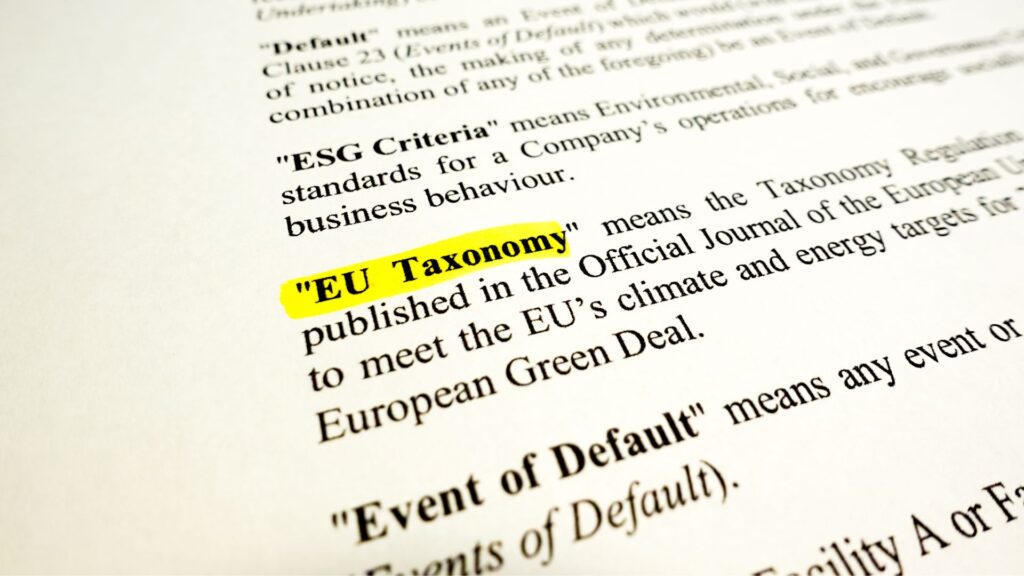Revising Climate and Environmental Delegated Acts

Based on: https://eur-lex.europa.eu/legal-content/EN/TXT/PDF/?uri=OJ:L_202302485 and https://eur-lex.europa.eu/legal-content/EN/TXT/PDF/?uri=OJ:L_202302486
In today’s ever-changing world, the preservation of our environment has become a topic of utmost importance. With the increasing global focus on sustainability and climate resilience, it is crucial for economic activities to align with environmental objectives. Recently, two delegated acts have been published, namely the Amending Climate Delegated Act and the Taxonomy Environmental Delegated Act. These acts provide a regulatory framework to address environmental concerns and promote a more sustainable economic environment.
Amending Climate Delegated Act
The Amending Climate Delegated Act establishes technical screening criteria (TSC) for economic activities that significantly contribute to climate change mitigation and adaptation. This act specifically targets activities that have not yet been included in the taxonomy, such as manufacturing operations related to low-carbon transport and electrical equipment. By setting these criteria, the act ensures that economic activities align with climate objectives. It is noteworthy that this act will come into effect from January 1, 2024, with two specific provisions applying from January 1, 2025.
Taxonomy Environmental Delegated Act
On the other hand, the Taxonomy Environmental Delegated Act focuses on economic activities that substantially contribute to non-climate environmental objectives. These objectives encompass the transition to a circular economy, biodiversity control or protection and restoration, pollution prevention, and the usage and protection of water and marine resources. The act also amends the Disclosures Delegated Act, resulting in clearer disclosure obligations for additional activities. Just like the Amending Climate Delegated Act, the Taxonomy Environmental Delegated Act will be applicable from January 1, 2024.
These acts have gained significant popularity due to their immediate relevance to the global concern of environmental preservation. By providing specific screening criteria for economic activities that impact different environmental aspects, they offer a concrete regulatory approach. The fact that these acts are set to be effective from the start of 2024 reflects the urgency and importance of addressing environmental issues.
A Unified Path to Sustainability
Although the Amending Climate Delegated Act and the Taxonomy Environmental Delegated Act both focus on environmental regulation, they tackle different facets. The former concentrates on climate change adaptation and mitigation, targeting sectors that were previously unregulated. On the other hand, the latter casts a broader net, encompassing non-climate environmental areas like pollution control, water and marine resources conservation, and the transition to a circular economy. Despite their different focuses, these acts complement each other in fostering a more sustainable economic environment.
Implementing these acts will require businesses and organizations to ensure that their activities align with the established screening criteria. This will not only contribute to environmental preservation but also enhance their reputation as responsible entities. Moreover, the acts provide a framework for accountability, as businesses will be required to disclose their activities in a more transparent manner. This will enable stakeholders to make informed decisions and promote a culture of sustainability.
The publication of the Amending Climate Delegated Act and the Taxonomy Environmental Delegated Act marks a significant step towards a more sustainable future. These acts provide a regulatory framework for economic activities to align with environmental objectives. By establishing technical screening criteria, they ensure that businesses and organizations contribute to climate change mitigation and adaptation, as well as other non-climate environmental objectives. It is crucial for all stakeholders to embrace these acts and work towards a more sustainable and resilient economy. Together, we can make a difference and safeguard our planet for future generations.
Interested in speaking with our consultants? Click here to get in touch.
